I've found the perfect portable blender for two – KitchenAid Go Cordless Portable Blender review
We tested the KitchenAid Go Cordless Portable Blender on smoothies, protein shakes, dips, and ice cones. Here's everything you need to know
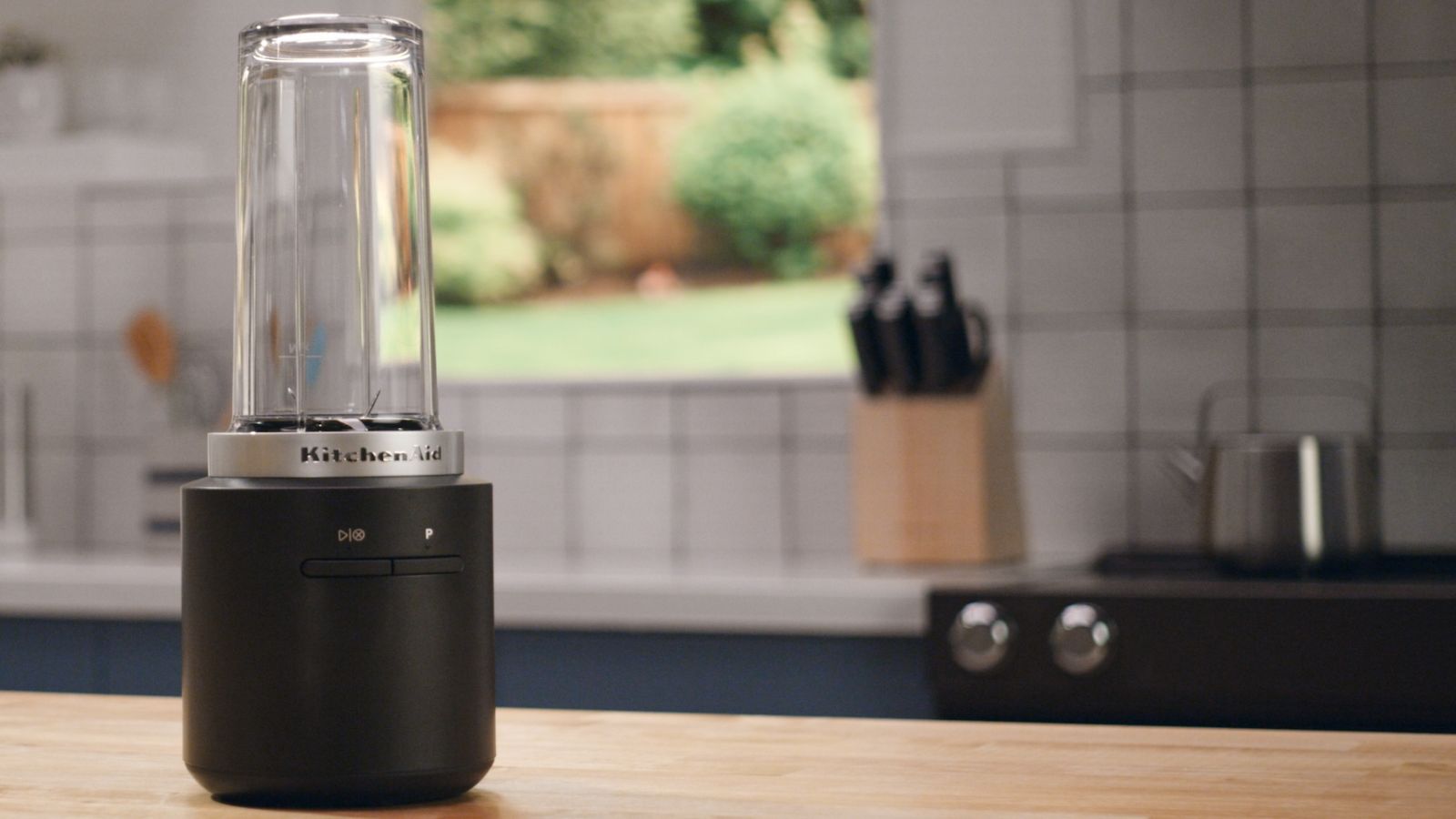
If you're fed-up of personal blenders that make small glasses of smoothie, you'll love the KitchenAid. It's big, powerful, and completely cordless without being too bulky or heavy. It might be more than some people need, but it's a good investment for campers and gym-goers.
-
+
Enough capacity for a big shake
-
+
Sleek, durable design
-
+
Cordless and convenient
-
+
Powerful, effective results
-
-
Too big for some
-
-
Spare batteries are expensive
You can trust Homes & Gardens.

KitchenAid have been gracing us with elegant, durable, cordless appliances for decades. Their latest release, the Go Cordless Portable Blender, is amongst some of their best launches. Here’s why.
When we’re testing the best personal blenders on the market, we look for three things: power, design, and usability. Unlike the majority of models that don’t make our list, the KitchenAid is powerful enough to rival plug-in family blenders. It’s slim and sleek, but with enough capacity to support two drinkers or those who want big protein shakes. And usability? It’s a KitchenAid. Of course it’s easy to use.
I put the KitchenAid through a series of tests, using it to make smoothies, dips, and crushed ice. I’ll give you a spoiler: it was brilliant. If you’re a big smoothie drinker or gym goer, this is perfect for you.
Specifications
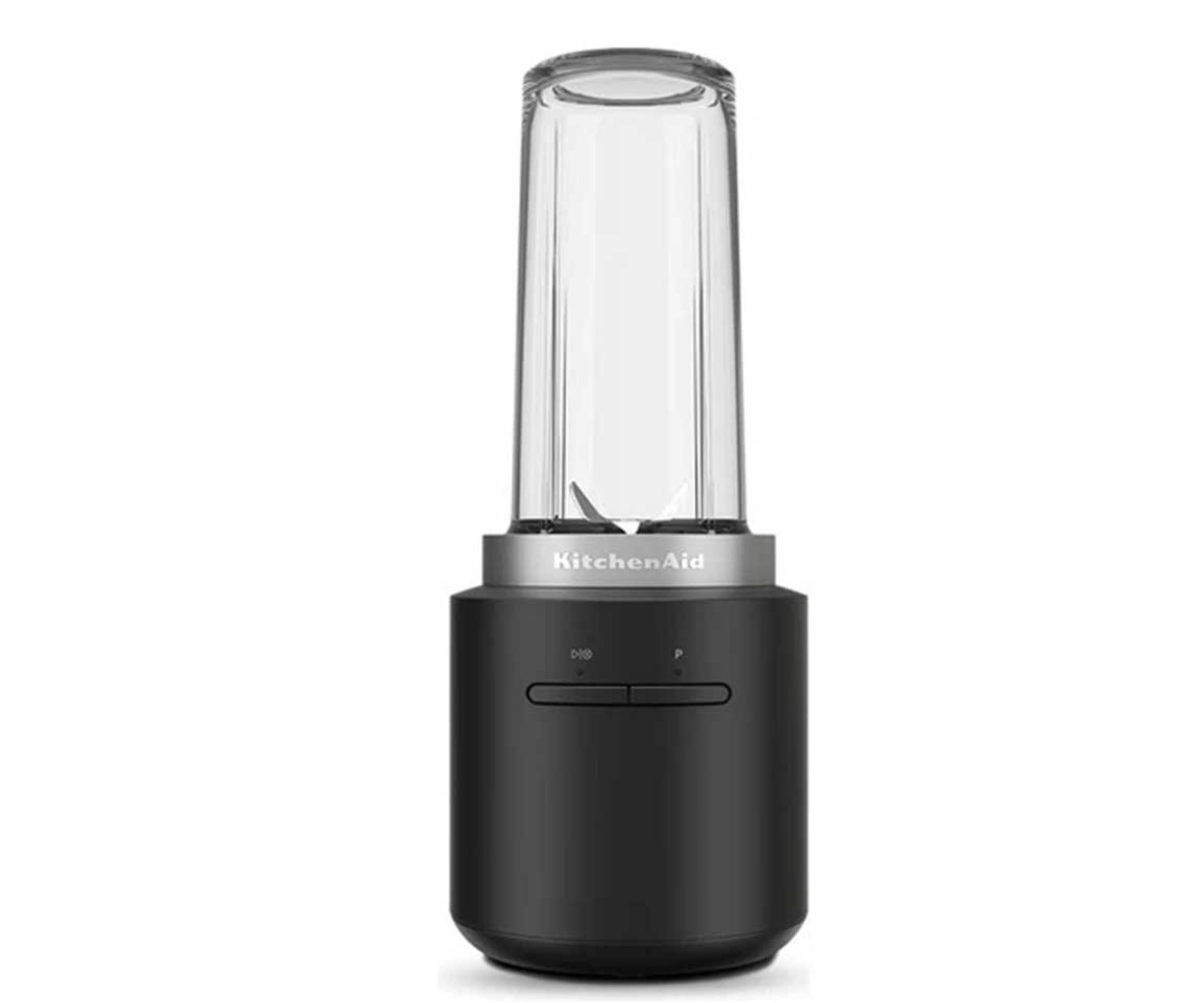
| Dimensions | 4.81"D x 5.15"W x 11.84"H |
| Weight | 3.3 Pounds |
| Capacity | 16 ounces |
| Power | 12 Volts |
| Material | Plastic |
Unboxing
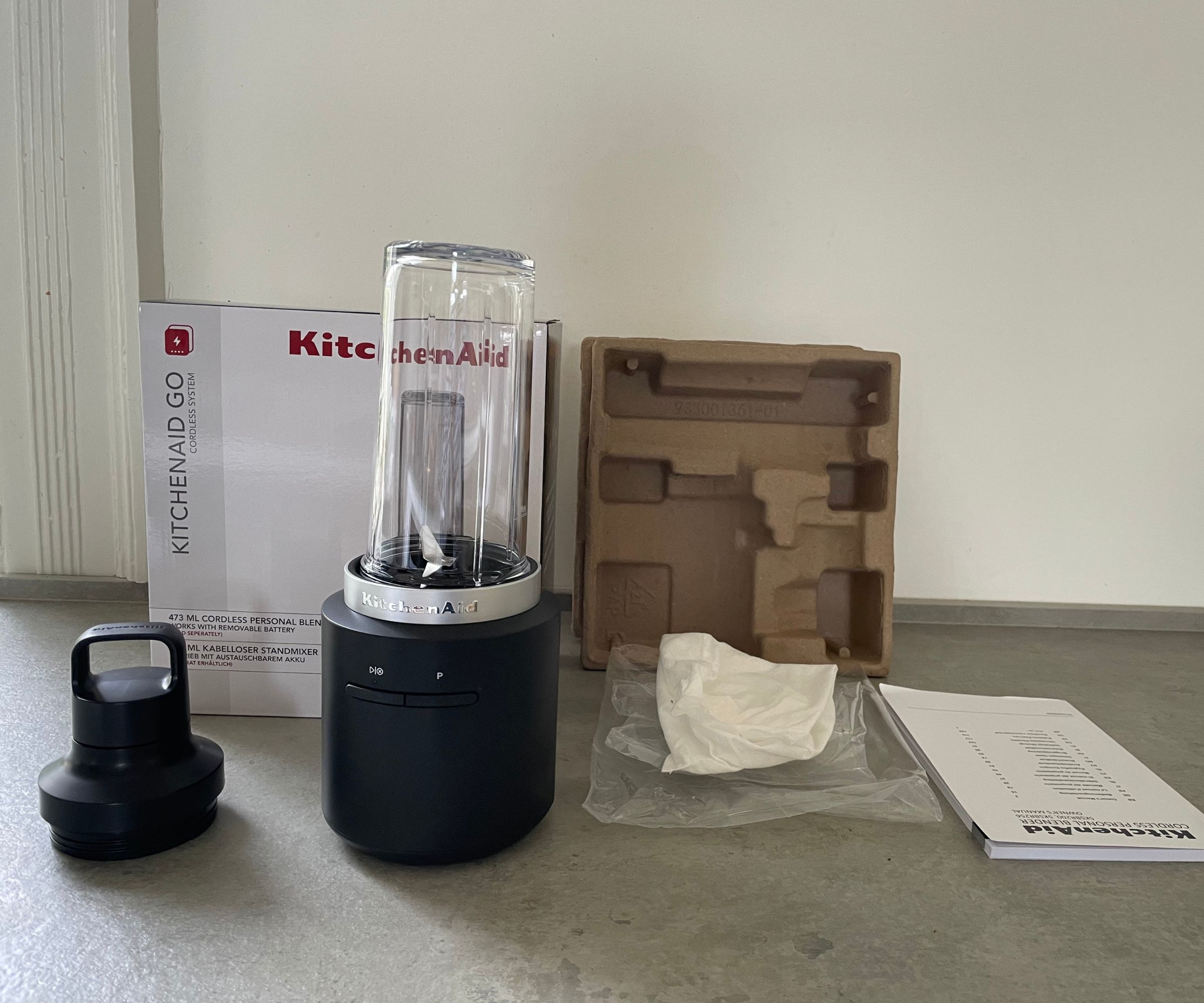
In true KitchenAid style, the packaging for the blender was minimal. The cardboard box is completely recyclable, making this easy on your garbage.
We tested a model that comes with a rechargeable battery included. Whilst buying a model with a battery is a little more expensive than not, you’ll need it if you don’t already have a battery from one of KitchenAid’s other cordless models. Once you have one or two batteries, you can buy any of KitchenAid’s range without needing to make an extra investment.
Aesthetically, this is bigger than most personal blenders out there. In fact, it was only just smaller than the NutriBullet Pro 900. The design is sleek and easy to store, but it’s certainly on the large end of portable blenders.
Who would it suit?
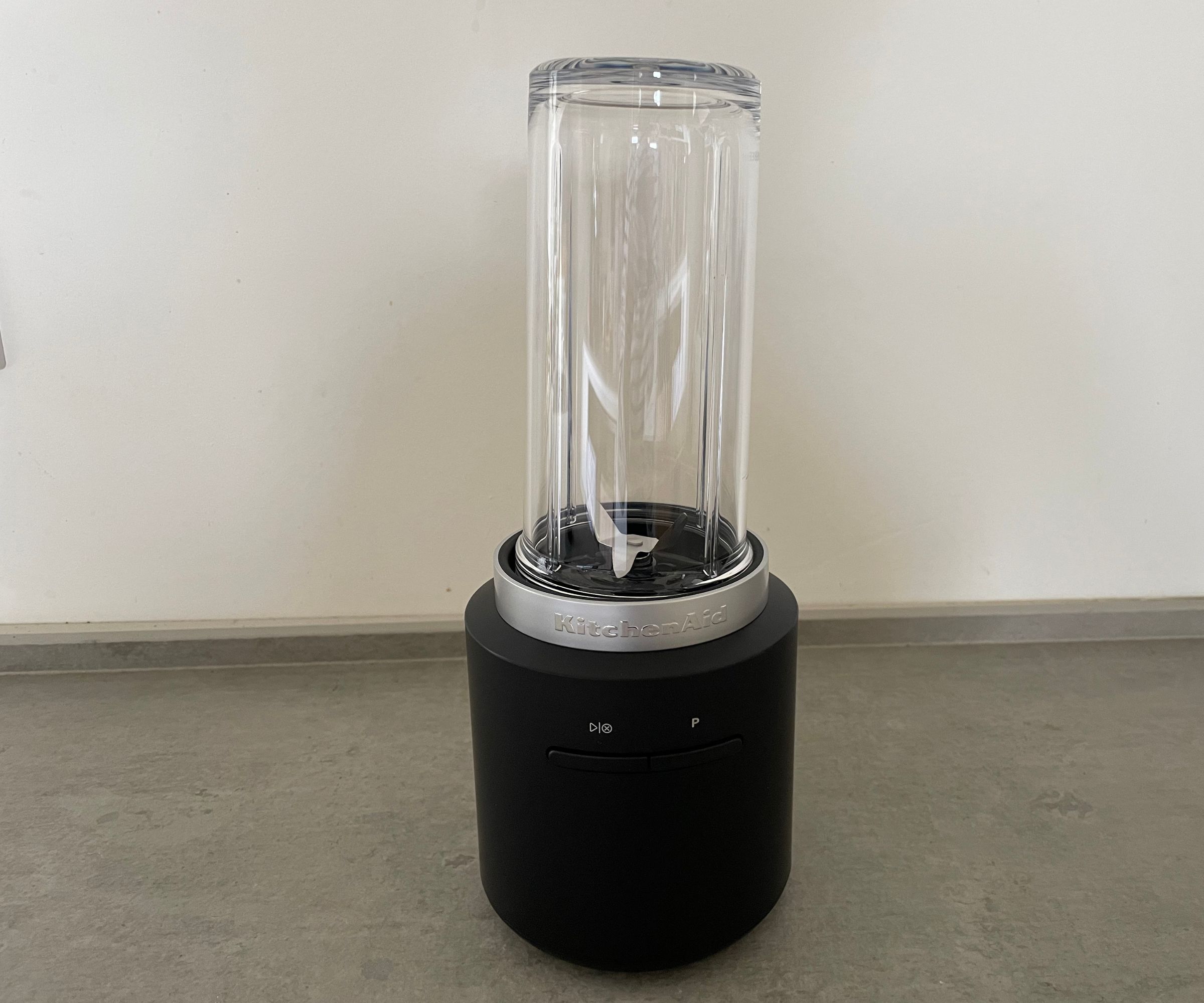
Of all the cordless, personal blenders that I’ve tested, the KitchenAid is the biggest. That makes it the best candidate for kitchen use. You could easily make bigger portions, enough for two or three, in this. It feels more like a normal blender that just happens to be conveniently cordless. So, if you like big protein shakes, or you’re serving two people on the go, this is a great option.
The battery is also the longest-lasting of all the models we’ve tested. It could run for a full 60 minutes, according to KitchenAid, which is a lot of use. The fact that it separates to charge is useful for space, but it also means you can get a lot of juice in it before you go off-the-grid camping, for example.
By virtue of its size and power, the KitchenAid has the best performance of all the cordless blenders we’ve tested, so if you’re all about achieving elite results, this is perfect. However, if you’re looking for a model that can slot into your handbag or the bottle holder in your rucksack, this is just too big. it could go in a gym bag, like a protein shaker, but that’s about it.
What is it like to use?
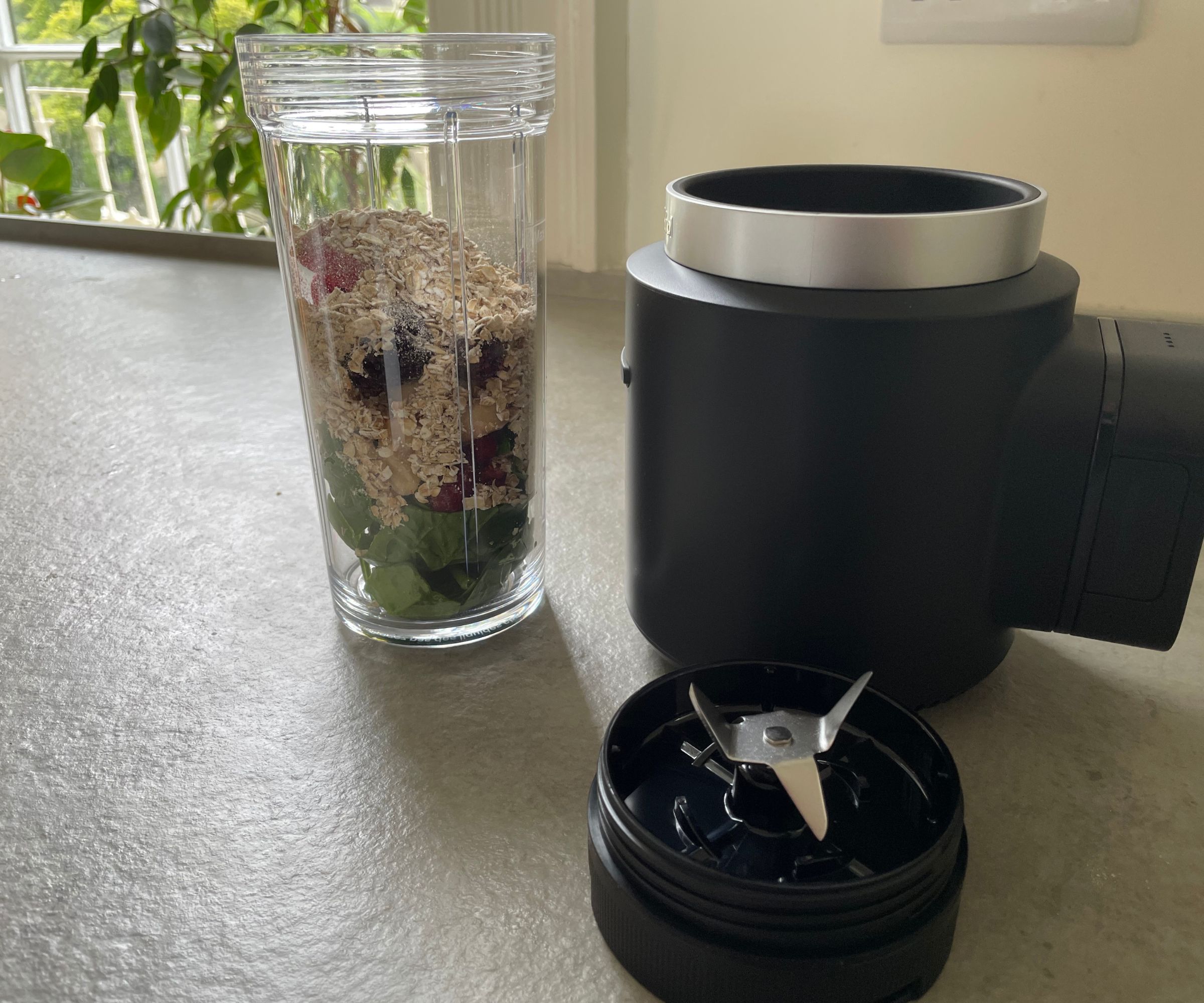
My KitchenAid battery arrived with full charge, but the first thing I’d recommend that you do is get yours charging, just in case. Setting up the KitchenAid for blending was simple. All I had to do was rinse the blending bottle and then it was ready to use.
The controls are simple. You lock the blending bullet, put it in place, and twist. It works on a single, powerful speed, so you’ll have to keep an eye on things if you want some texture, but it’s really, very easy.
Test 1: smoothies and protein shakes
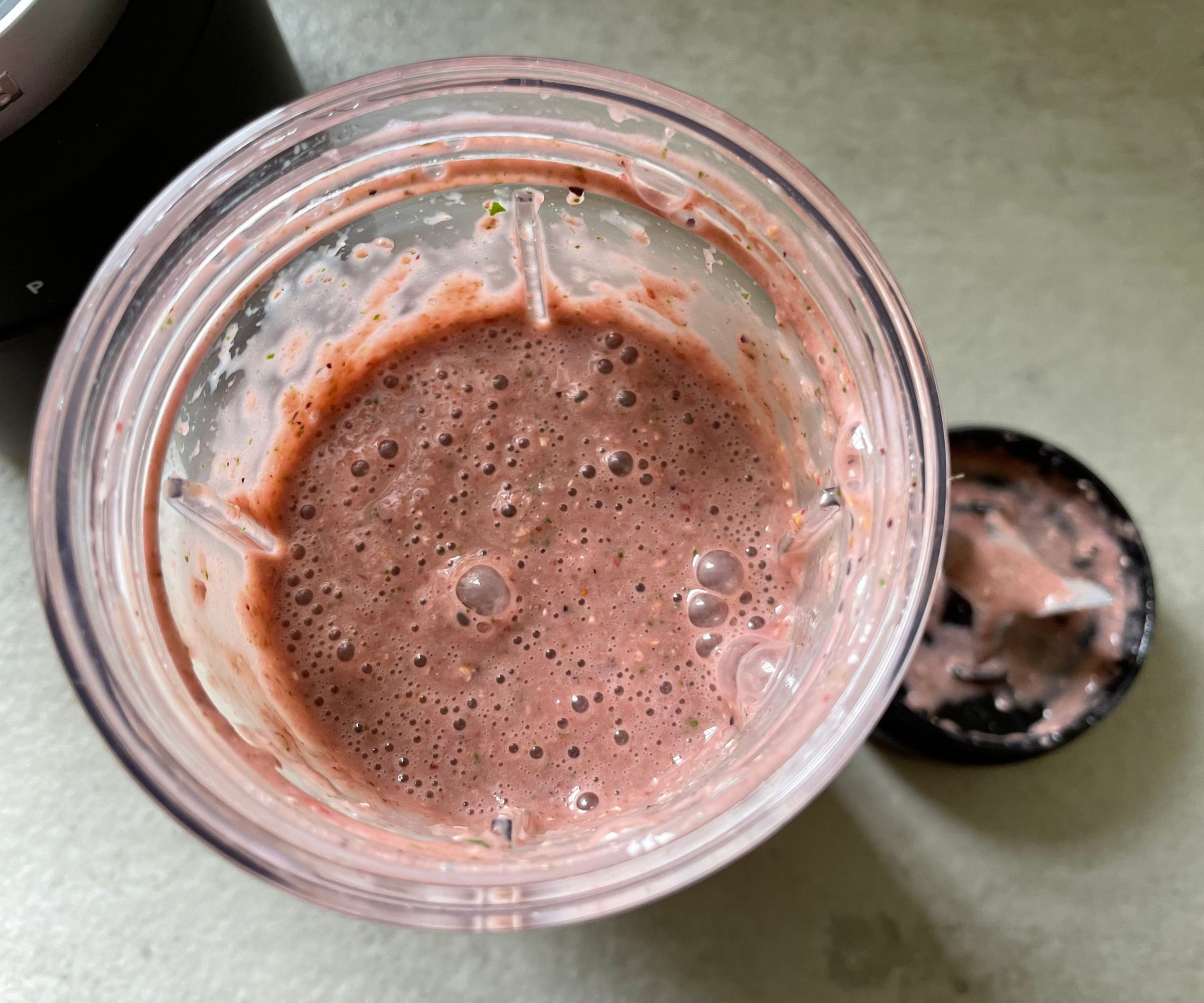
The first test we put all of our blenders through is making a smoothie. I added frozen berries, bananas, spinach, oats, and almond milk to my blending bottle. This is a good test of the blender's versatility and range. Spinach skins are tough to whizz into nothing; frozen, seedy berries are almost as tough as blending ice cubes; and oats can be fibrous and tricky to get super smooth. However, at both half and full capacity, the KitchenAid worked quickly and effectively. The smoothies were perfect, there wasn’t a seed or a skin in sight.
Then I tried adding a scoop of protein powder to my drinks. Often, adding creatine or protein can make your drink go lumpy, with pockets of powder. However, the KitchenAid didn’t struggle at all. It incorporated my protein powder perfectly into the smoothie, which would suggest that you could use this for batters and pancake mixes too.
Test 2: hummus
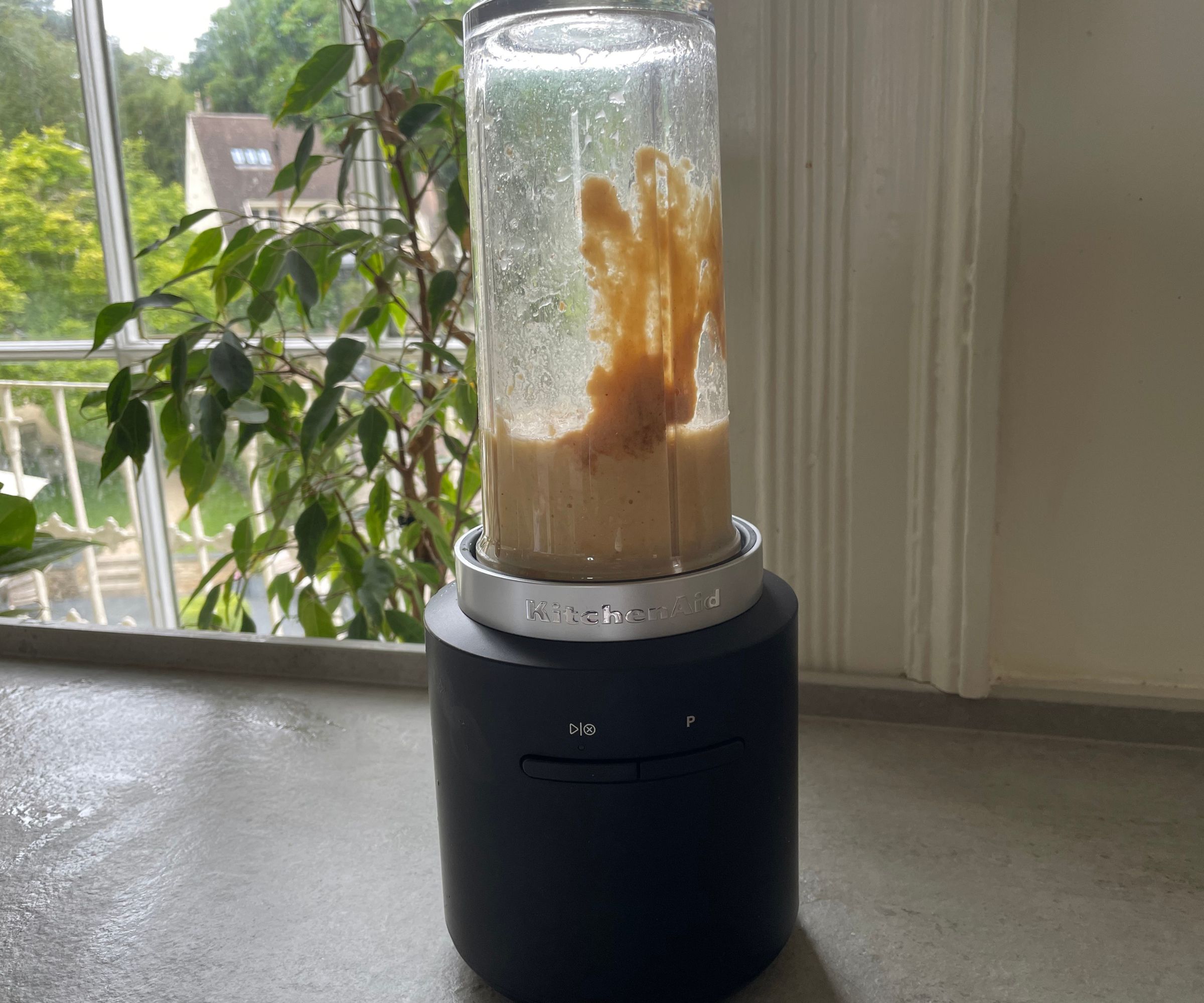
The next test I give all of our blenders is making hummus. This can be tough for small, bullet models, since the mix is much lower in liquid content. However, it’s also really useful if you know that your blender can whip up hummus, guacamole, or salsa.
I used the KitchenAid to make hummus, so I added a can of chickpeas, a spoon of tahini, a squeeze of lemon, some cumin, and some salt to the blender. Then, I twisted on the lid and turned the bottle upside down for blending. This did mean that I left a bit of tahini on the side of my blender, an unavoidable bit of residue, but it wasn’t a disaster. I gave the blender a shake so that the hummus would pick it up.
The most important thing to know is that the KitchenAid made the best hummus of all the personal blenders I’ve tested. It was by far the smoothest and that was in the shortest amount of time too. The next most important thing to know is that I made double the amount of hummus than I did in any other personal blender. Both of these are down to the above-average size and power of the KitchenAid, which I’m wondering even classes as ‘personal’, but I won’t complain.
Test 3: crushed ice
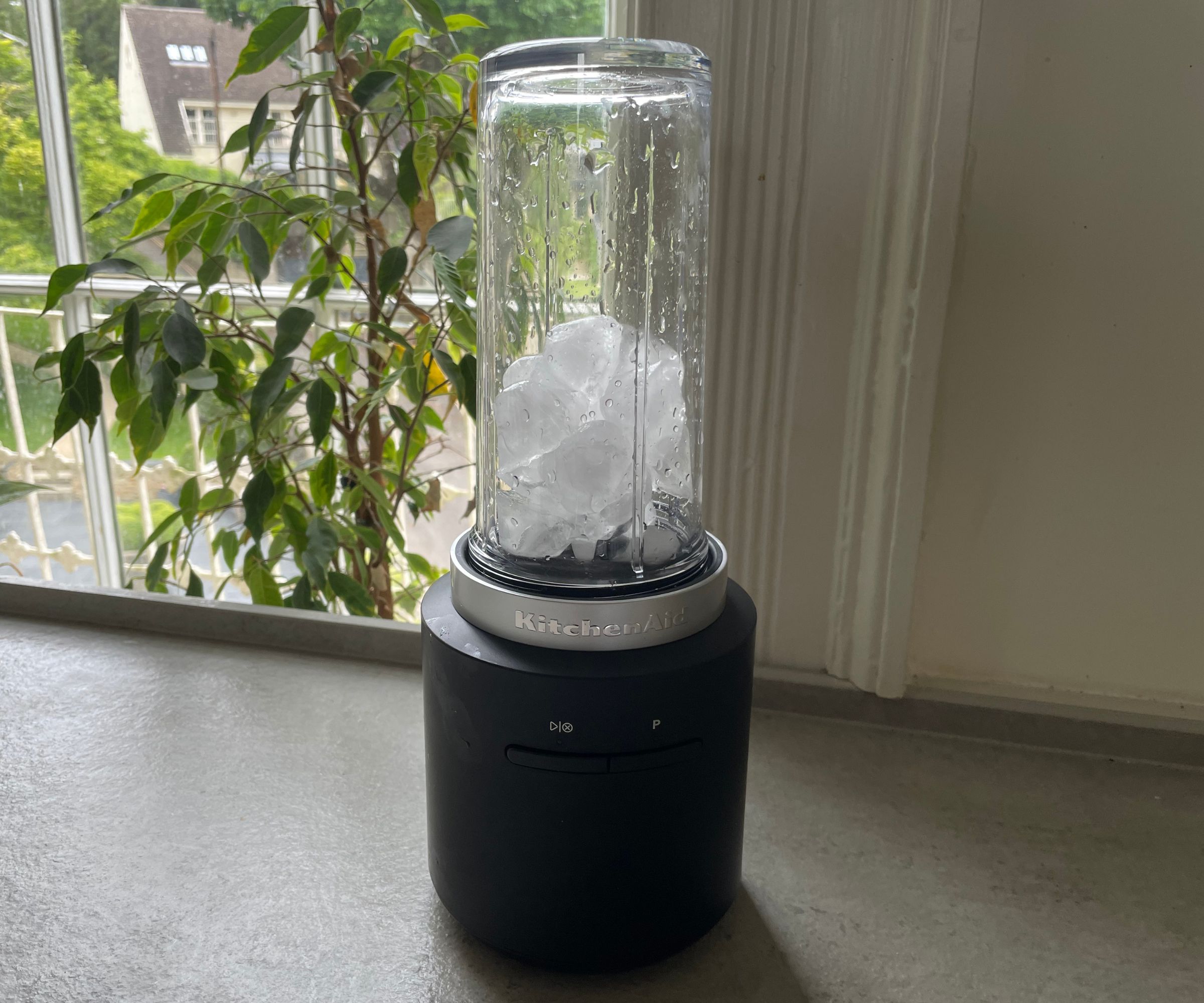
The final test is a bit of an unfair one for personal blenders, but we give it to our bigger blenders because we think it’s a useful thing to know. We add ice cubes and a drop of water to our blender to see whether it can crush ice. The KitchenAid is one of a handful of personal blenders that actually, successfully blended ice finely enough for it to be an ice cone. It wasn’t as perfect as a full-suited Vitamix, but you could definitely use this for frozen cocktails.
Cleaning, storage, and maintenance
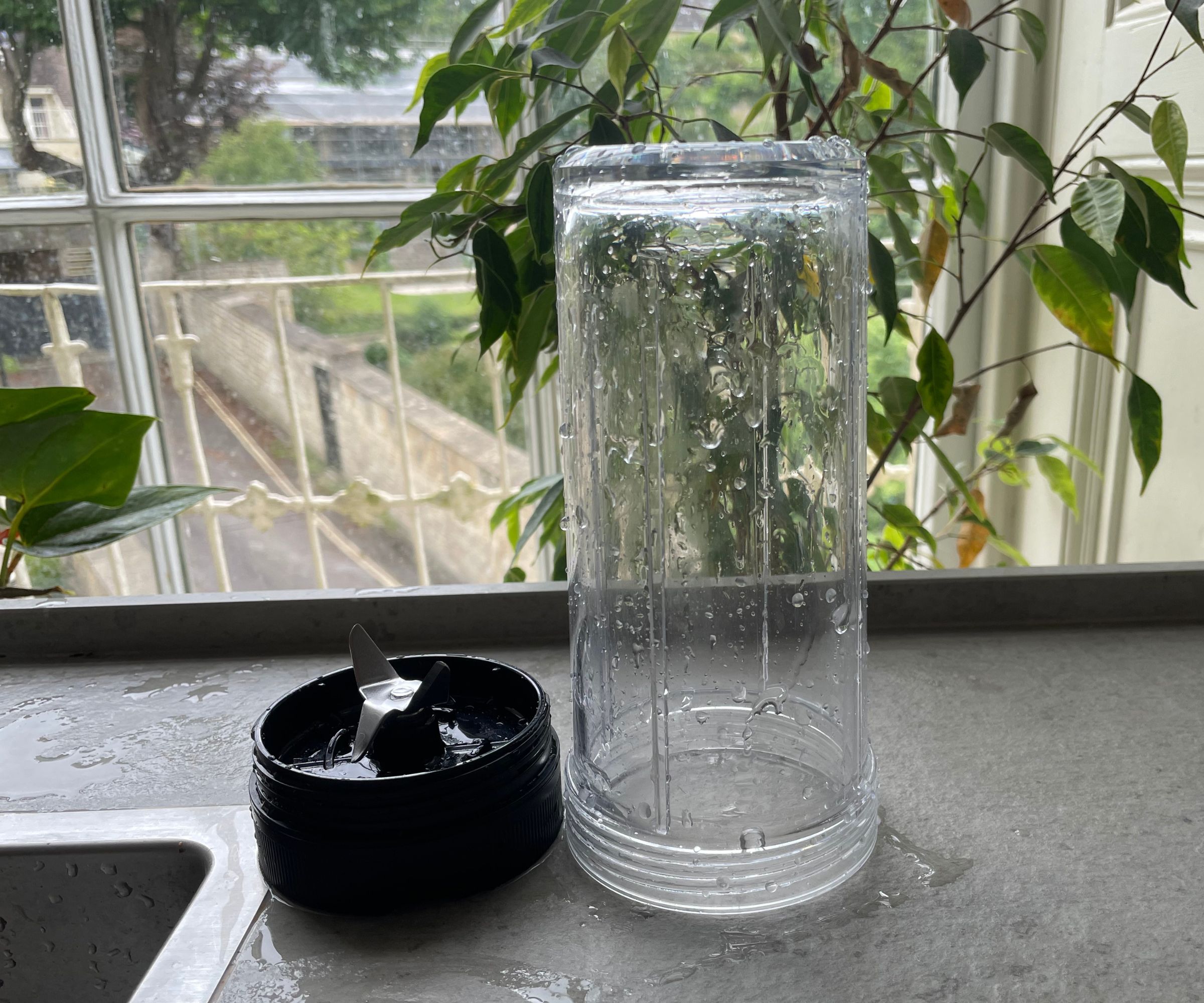
This part of the whole KitchenAid user experience is as good as the rest. All of the detachable parts are dishwasher safe, so they’re easy to load in and forget about. I chose to hand wash them, adding a squeeze of dish soap and some warm water to the blending bottle. Just thirty seconds of blending cleaned all the hummus or smoothie out of the blender and it was ready to go again. It’s simple.
As for storage, this is easy to fit into any cupboard. If you think of this as a carton of milk in size, any space that will fit it will fit the KitchenAid. Even better, you don’t have a plug or cord getting tangled with anything. This is just one appliance. I hate to say the same phrase again, but it’s simple.
How does it rate online?
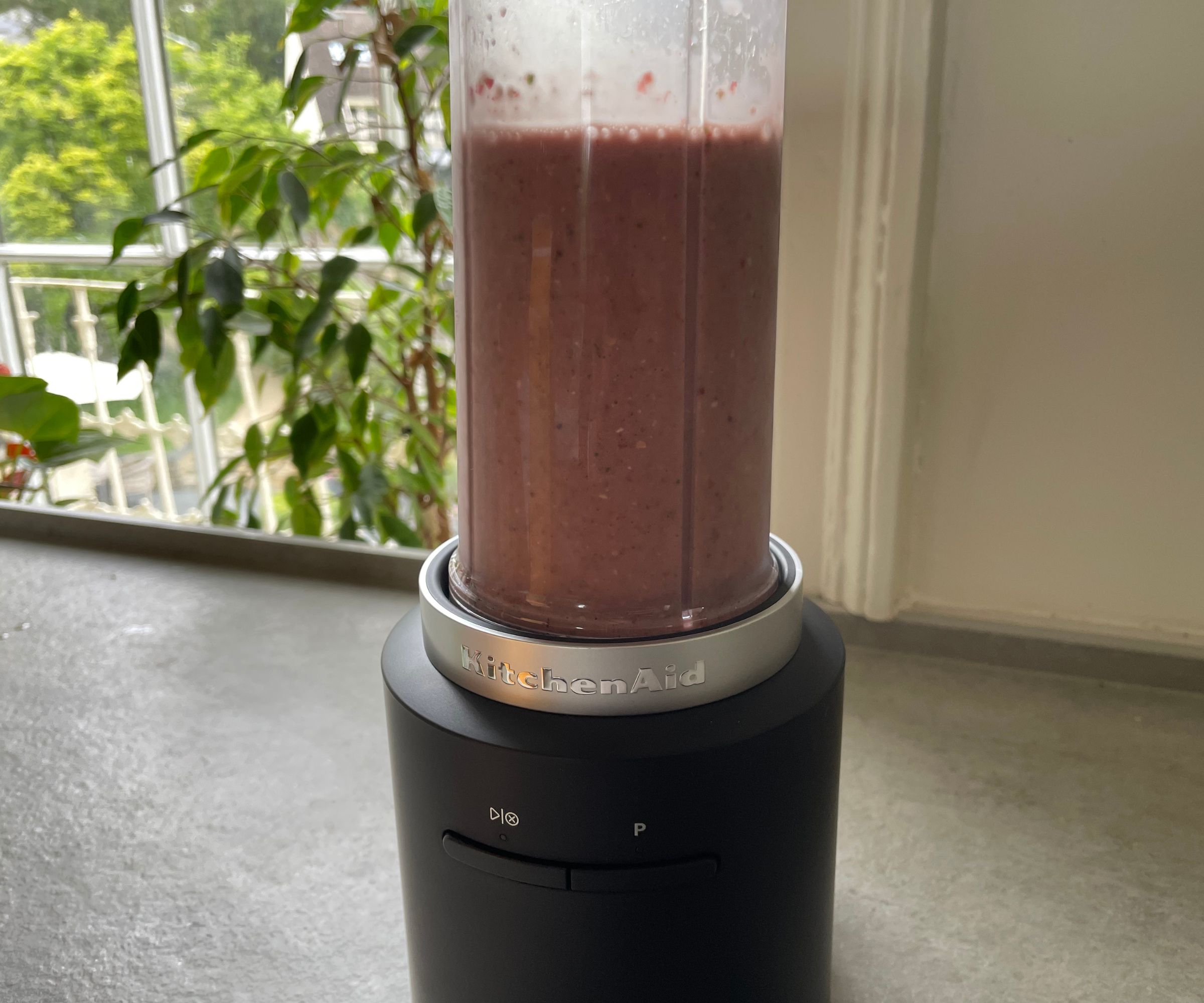
Even though this is relatively new to the market, the KitchenAid has some impressive reviews. People praise it as versatile, slim, and easy to use. I was actually surprised to find a number of people calling this 'light and compact', saying they carried it with them to work and to the gym. I thought it was quite big, especially for personal blender standards, but if you don't need anything too hefty, this is a good shout.
A few reviewers said that another blending bottle would have made a difference. Then, you could have multiple drinks on the go, which is a good idea, but it would also take up more space in the cupboard. A few people also commented that this was an expensive personal blender, which it is. However, you're paying for KitchenAid's battery, which is then compatible with five other products in their range. If you'll use all of these, you can actually make a good saving.
How does it compare?
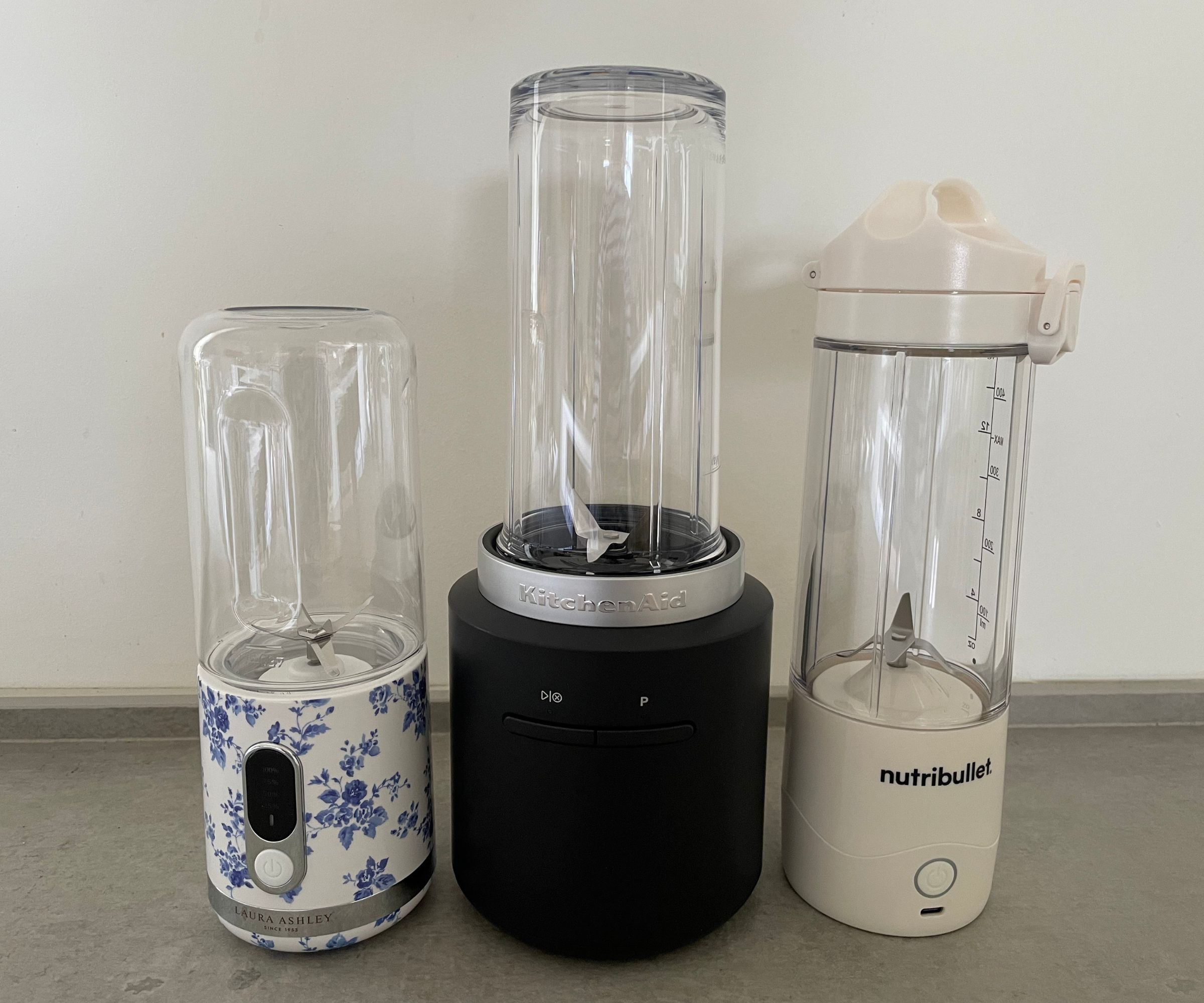
This is one of the biggest personal, portable blenders that we’ve tested, so it’s tricky to find one that makes a fair comparison. However, as we were using it, our experts kept coming back to the BlenderX, which is relatively similar.
We normally recommend the BlenderX to campers because it’s big and has good battery life and some serious power. Granted, the 20 oz jar of the BlenderX is another 4 oz bigger than the KitchenAid, but it is more powerful and can run for a lot longer. In fact, the KitchenAid Go Cordless can run for 60 minutes at full power. That's a lot of blending for just one battery.
The BlenderX is perhaps better set up for travel, thanks to its useful carry bag and simple controls. It's also quieter to use. However, it's twice as heavy, so if you need to economize on weight, the KitchenAid is a good option.
At exactly the same price, it's hard to choose between the two. The BlenderX is bigger and it's powerful, but it's also heavier and less versatile. At the end of the day, it's an aesthetic choice.
Should you buy it?
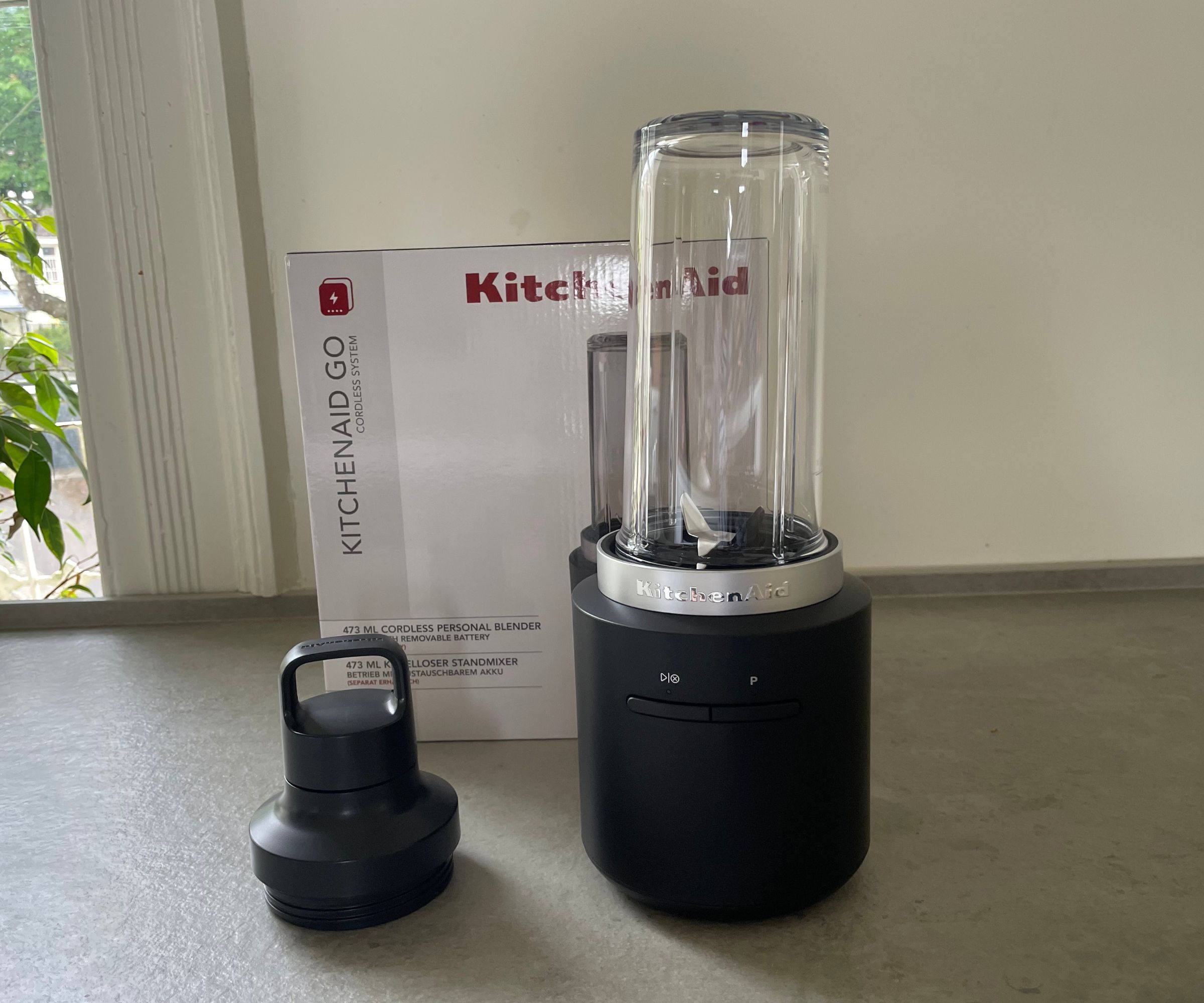
If you're looking for a substantial, powerful, personal blender, the KitchenAid is the perfect option. It's slim, sleek, and easy to use. Our experts are sold on it. However, we recognize that this is bigger than some people might want in their personal blenders, so if you need a handbag or backpack sized option, you'll want to check out our list of the other best portable blenders out there.
How we test
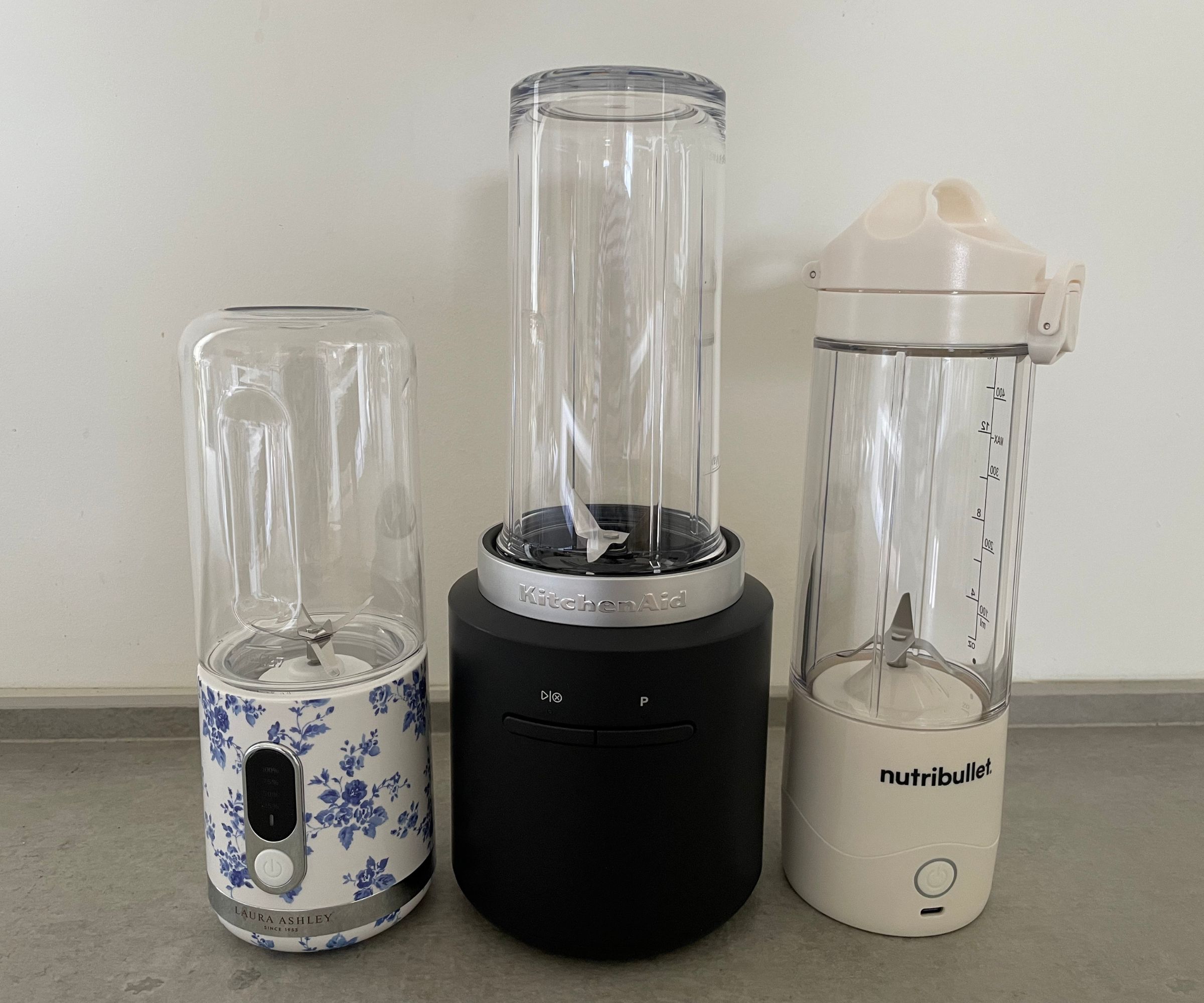
Evaluating a blender involves extensive behind-the-scenes work. Our experts dedicate their time to researching the top portable blenders available. When we discover a promising model, we bring it into our test kitchen. Once we have it, we assess every aspect, from unboxing and initial impressions to making smoothies, protein shakes, hummus, salsa, and ice cones.
After thorough testing, we clean the blender to determine how easy it is to get it sparkling clean. We also evaluate how simple it is to maintain and store. Then, we compare it with other models on the market.
Ultimately, we decide who the blender is best suited for and whether it's worth purchasing, helping you make an informed decision. For more details, check out our dedicated page on how we test blenders.
Sign up to the Homes & Gardens newsletter
Design expertise in your inbox – from inspiring decorating ideas and beautiful celebrity homes to practical gardening advice and shopping round-ups.

Laura is our eCommerce editor. As a fully qualified barista, she's our expert in all things coffee and has tested over thirty of the best coffee makers on the market. She has also interviewed Q-Graders and world-leading experts in the coffee industry, so has an intimate knowledge of all things coffee. Before joining Homes & Gardens, she studied English at Oxford University. Whilst studying, she trained as a master perfumer and worked in the luxury fragrance industry for five years. Her collection of home fragrance is extensive and she's met and interviewed five of the world's finest perfumers (also known as 'noses'). As a result of this expansive fragrance knowledge, she always puts quality and style over quantity and fads. Laura looks for products which have been designed simply and with thoughtful finishes.
-
 Kris Jenner's favorite air fryer, the Ninja Crispi, is the perfect small kitchen solution – it deserves a place on the most compact of countertops
Kris Jenner's favorite air fryer, the Ninja Crispi, is the perfect small kitchen solution – it deserves a place on the most compact of countertopsKris approves of this compact yet powerful air fryer, and so do our own kitchen appliance experts, praising it for its multifunctionality
By Hannah Ziegler Published
-
 Ina Garten's storage pantry is an insightful window into all of the best cookware used by the chef – and it's easy to recreate on your kitchen shelves from $48
Ina Garten's storage pantry is an insightful window into all of the best cookware used by the chef – and it's easy to recreate on your kitchen shelves from $48The beautiful dishware in The Barefoot Contessa's Hamptons pantry showcases the tools she uses most often to cook – this is exactly how you replicate it
By Sophie Edwards Published
-
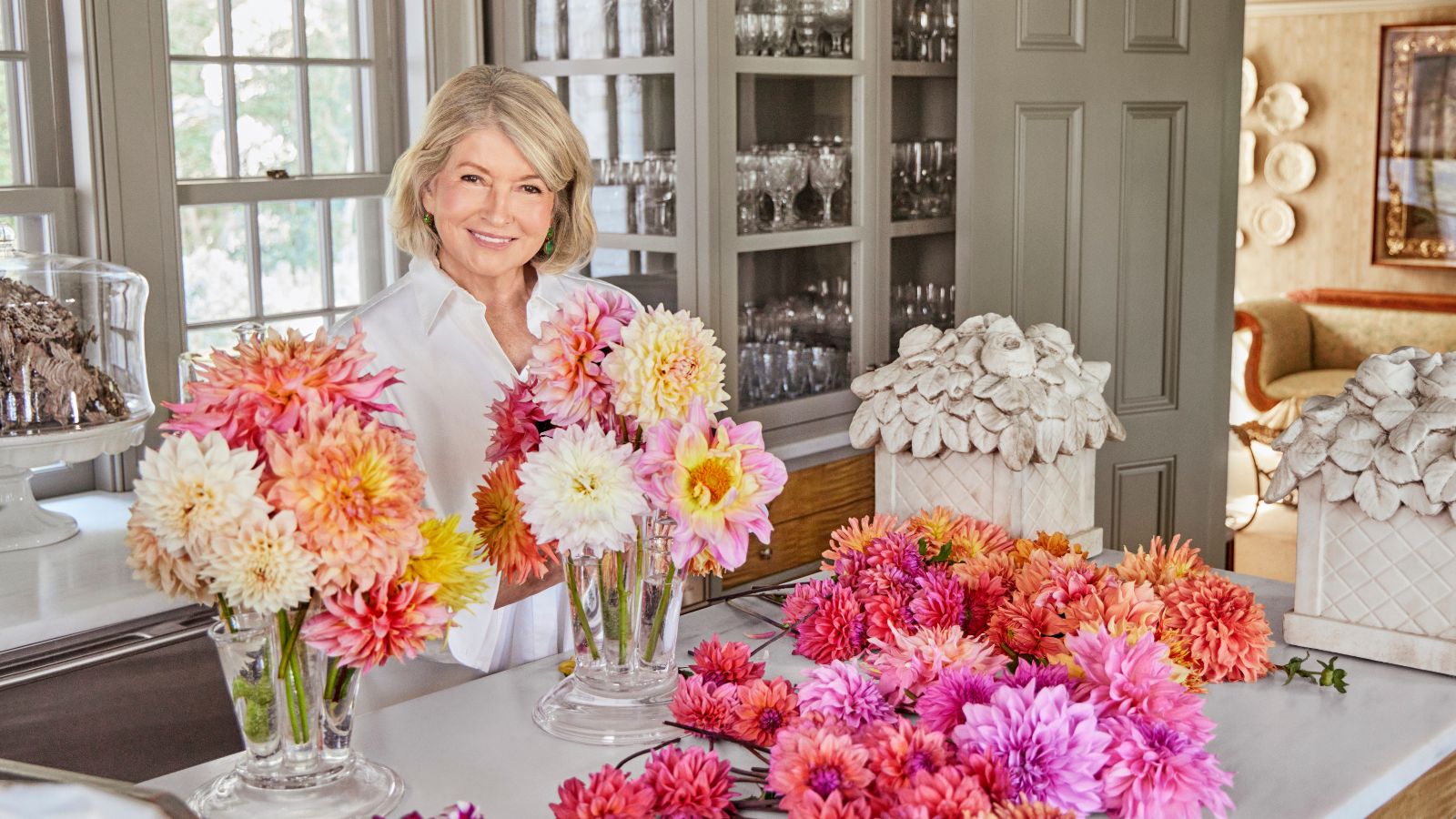 Martha Stewart's tips for arranging daffodils are unbelievably simple and effective – it's the only flower advice you need this springtime
Martha Stewart's tips for arranging daffodils are unbelievably simple and effective – it's the only flower advice you need this springtimeMartha shows us that we can create gorgeous bouquets of this seasonal flower by simply trimming the stems and placing them in specific vases
By Hannah Ziegler Published